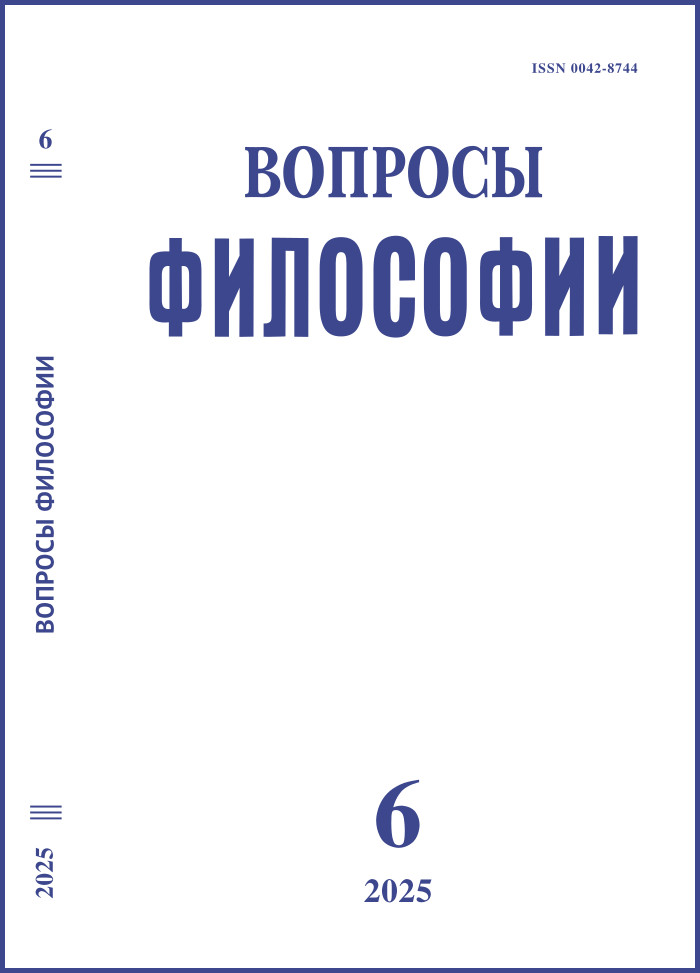Alexey Alekseyevich Ukhtomsky and the Traditions of Russian Philosophy and Science. For the 150th Anniversary of the Thinker (Materials of “Round Table”)
DOI:
https://doi.org/10.21146/0042-8744-2025-6-5-53Keywords:
A.A. Ukhtomsky, dominant, chronotope, physiology, human, ethics, interdisciplinarity, Russian philosophyAbstract
In June 2025, the 150th anniversary of the birth of the Russian scientist and philosopher, academician of the USSR Academy of Sciences, Prince Alexey Alexeyevich Ukhtomsky, will be celebrated. His fundamental research in physiology is well known in the scientific community, while his philosophical reflections have come to light relatively recently. The ideas contained in his works and ego-documents – diaries and letters – allow us today to raise the question of his holistic, interdisciplinary philosophical concept, encompassing studies in the natural sciences, cultural and historical research, and spiritual literature. To mark the philosopher’s anniversary, Voprosy Filosofii, in collaboration with the Memorial House-Museum of Academician A.A. Ukhtomsky, organized a round table to discuss the following topics: The philosophical meaning of spirituality in Ukhtomsky’s works: the world as a spiritual organism; Freedom as the overcoming of its excessive degrees (Ukhtomsky’s ideas in the field of ethics); Ukhtomsky’s concept of “functional organs” (physiological, psychological, and cultural-historical aspects); Spirituality and the comprehension of the world: are we constructing or discovering it? Ukhtomsky’s idea of communication and his sphere of conversation; The interpretation of moral norm within the framework of the concept of “conscience intuition”; The “chronotope” in Ukhtomsky’s concept and contemporary issues in interdisciplinary research. The round table participants – physiologists, psychologists, educators, philologists, and philosophers – emphasized the relevance of Ukhtomsky’s intellectual heritage for understanding contemporary issues in philosophy and science, paying particular attention to his “archive of an epoch”.

